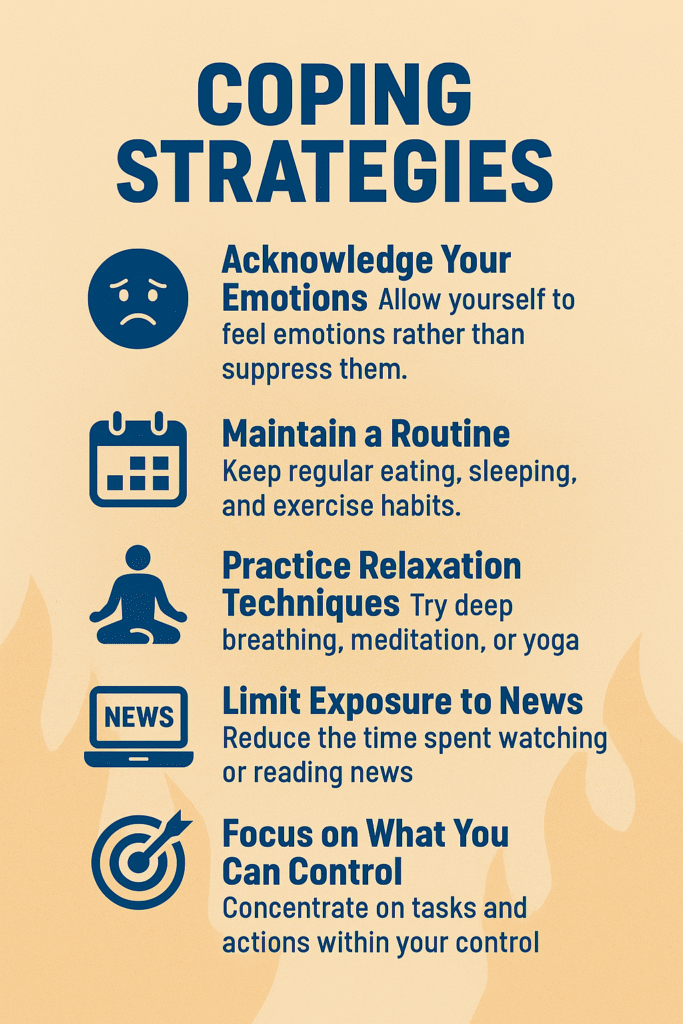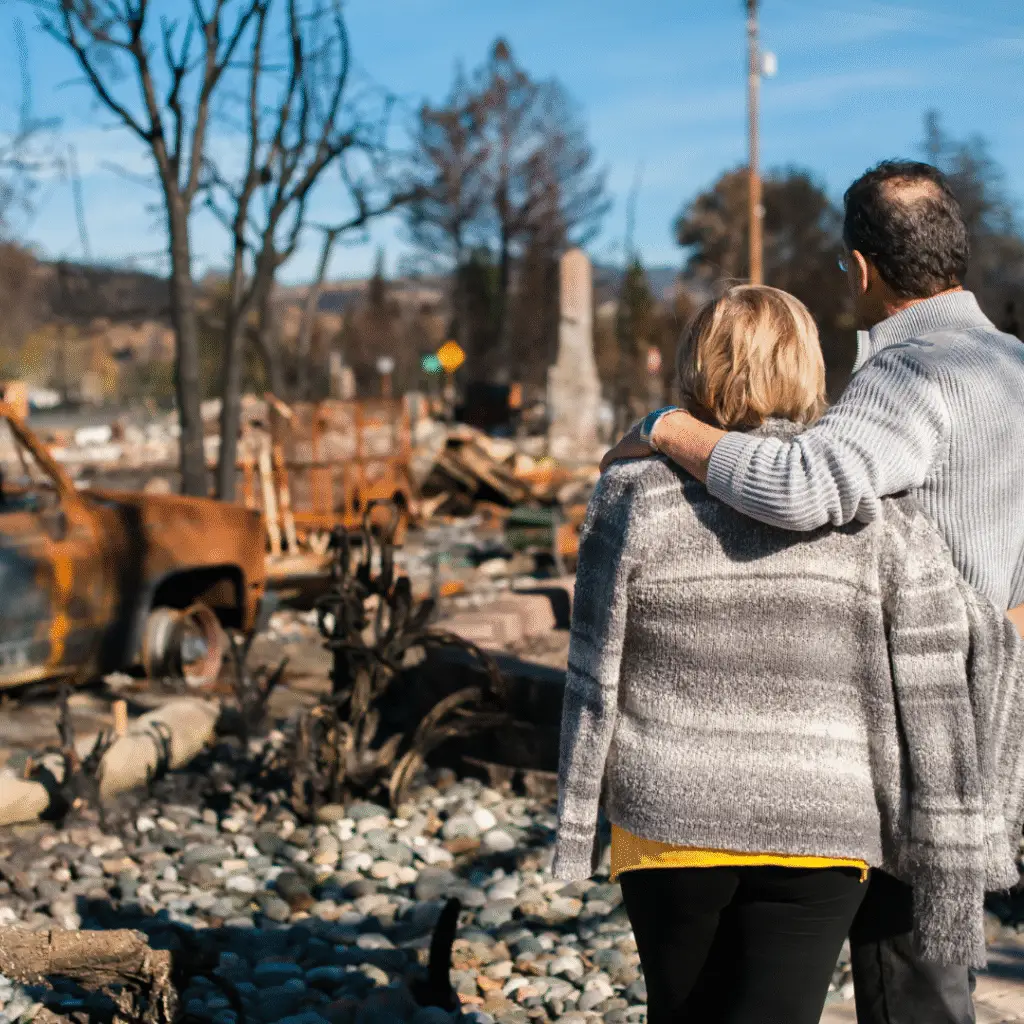Wildfire Emotional Support Guide: Coping Strategies & Mental Health Resources
The devastating impact of wildfires extends far beyond burned structures and scorched landscapes—it leaves lasting emotional scars that can affect survivors for years to come. According to the American Psychological Association, up to 80% of wildfire survivors experience some form of psychological distress, with nearly 25% developing symptoms of post-traumatic stress disorder (PTSD) within the first year. As climate change intensifies wildfire seasons across the country, addressing the mental health aftermath has become just as critical as physical rebuilding efforts.
This comprehensive guide explores effective coping strategies during and after wildfire events, the importance of support networks, special considerations for vulnerable populations, and professional resources available to those struggling with trauma, grief, and anxiety. Whether you’re personally affected by wildfires or supporting someone who is, understanding the emotional journey of disaster recovery can help build resilience and promote healing.
From practical relaxation techniques to accessing professional counseling services, this resource provides actionable steps for managing the psychological impact of wildfires. Remember that emotional recovery, like physical rebuilding, takes time—and seeking help is a sign of strength, not weakness.
Read our Ultimate Guide to Wildfire Preparedness here.
Coping Strategies During A Wildfire
The emotional impact of a wildfire can be just as devastating as the physical damage to your property. Wildfires often cause widespread destruction, displacing families and leading to feelings of grief, stress, and anxiety. It’s important to acknowledge that these emotional responses are natural and to prioritize your mental health as part of your recovery. Coping with the emotional fallout after a wildfire involves using effective strategies that help reduce stress, manage anxiety, and process trauma.
Here are some strategies to help you cope:

- Acknowledge Your Emotions: It’s common to feel overwhelmed, scared, or even numb after such a traumatic event. Allow yourself to experience these emotions rather than suppressing them. Accepting your feelings is the first step toward healing.
- Maintain a Routine: After a disaster, try to stick to familiar routines. Keeping regular eating, sleeping, and exercise habits can help ground you during turbulent times. Small daily routines can provide structure and reduce anxiety.
- Practice Relaxation Techniques: Incorporate mindfulness practices, such as deep breathing, meditation, or yoga, into your daily life. These techniques can help calm your mind, reduce stress, and promote emotional well-being.
- Limit Exposure to News: Constantly watching or reading about the wildfire recovery process can heighten stress. Limit your exposure to distressing news and take breaks from social media to maintain a sense of normalcy.
- Focus on What You Can Control: In the face of uncertainty, focusing on small, manageable actions can help. Whether it’s rebuilding your home, supporting your community, or simply checking in on a neighbor, taking action can empower you and provide a sense of purpose.
Support Networks and Reaching Out
No one should have to go through the emotional toll of a disaster alone. Connecting with others, whether through a formal support network or informal connections, can provide crucial emotional support during and after the crisis. Here are some ways to tap into your support network:
- Reach Out to Family and Friends: Talk to loved ones who are supportive and understanding. Sharing your feelings with someone you trust can help lighten your emotional load.
- Community Support Groups: Many communities offer grief or trauma support groups for those affected by wildfires. These groups can provide a safe space to express your feelings, share experiences, and receive validation from others who understand what you’re going through.
- Professional Counseling: Consider seeking help from a mental health professional such as a therapist, counselor, or psychologist. They can help guide you through trauma recovery, provide coping strategies, and offer long-term mental health support.
Supporting Vulnerable Individuals
It’s essential to recognize that certain people may need additional support in coping with the emotional aftermath of a wildfire. Children, the elderly, and individuals with pre-existing mental health conditions can be particularly vulnerable during these times. If you have loved ones who fall into these categories, here are some steps you can take to help:
- Children: Children may have difficulty processing the trauma of a wildfire, and they might express their emotions through behaviors such as anxiety, nightmares, or withdrawing. Encourage them to talk about their feelings and provide reassurance that they are safe. Maintain consistency in their routines to provide comfort and stability.
- Elderly Family Members: Older adults may face unique challenges, including physical health issues or cognitive decline, which can make it harder for them to manage stress. Offer emotional support and help them access mental health resources tailored to seniors.
- People with Pre-Existing Conditions: If someone you know is living with mental health conditions such as anxiety or depression, the added stress of a wildfire can exacerbate these issues. Encourage them to continue with their regular mental health treatments and seek additional support if necessary.

Professional Support
In the wake of a wildfire, it’s okay to seek professional help. Mental health professionals can provide invaluable assistance in helping individuals process trauma, reduce stress, and rebuild emotional resilience. Here’s how professionals can help:
- Trauma Counseling: Many licensed counselors specialize in trauma recovery. These professionals can provide a safe space to discuss your feelings and help you work through the emotional aftermath of the disaster.
- Grief Support: If you’ve lost your home or loved ones in a wildfire, grief support groups can help you cope with your loss. These groups offer a sense of community and understanding as you process your emotions.
- Crisis Helplines: National and local crisis helplines can provide immediate support for individuals experiencing overwhelming stress or anxiety. These services are available 24/7 to assist during emergencies.

The emotional toll of wildfires can be overwhelming, but it’s important to acknowledge and address the mental health needs of both yourself and your loved ones. Coping with stress, anxiety, and trauma in the wake of a wildfire is crucial for long-term recovery. By utilizing healthy coping strategies, seeking support, and offering help to those who may be struggling, you can foster a sense of resilience and healing. Remember, it’s okay to seek professional help when needed—taking care of your mental and emotional well-being is just as important as physical safety. Together, we can support each other and rebuild from the ashes, stronger than before.
🚨Want to do more? Donate to support mental health and emotional recovery programs for wildfire survivors or Get Trained as a Hope Force Reservist to provide essential support during times of crisis.
Together, we can help individuals and families navigate the emotional toll of wildfires and build a path toward healing. Let’s work together to ensure that everyone impacted by wildfires has the support they need to recover—physically, mentally, and emotionally.



